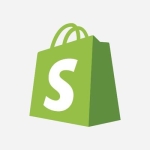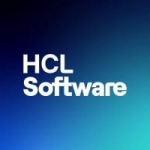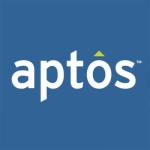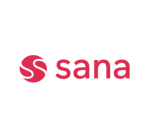How has it helped my organization?
Let me tell you about one of my clients: the basic premise of the solution is to enable the organization to do what it typically does best. It helps to create the platform, as much as possible, without having to focus on some of the associated challenges surrounding e-commerce platforms, like stability, scalability, and managing the technical agency theme or roadmap.
People always choose the solution that best serves their business goals. You can say that Salesforce is the best e-commerce cloud platform on the market, which serves the business purpose.
There is no "one size fits all" approach when it comes to e-commerce. It's a part of Salesforce's family, so Salesforce is very trustworthy and if we talk about Health Cloud, it's HIPAA compliant. If we talk about other industries, it offers all of the security policies which are needed. It is highly trusted, and the data is completely secure and it can easily integrate with the solution set.
What is most valuable?
Salesforce offers the best features and functionality which are developed and refined over many years to provide a highly customized e-commerce experience. It is mostly for clients who are more into e-commerce, so they go for the Salesforce Commerce Cloud because, the best part is, you don't have to develop everything from scratch.
Salesforce Commerce Cloud has seamless upgrades. Since the platform is SaaS, Salesforce continuously rolls out many new features in the background. These are available through an administration panel and often with minimal or no technical intervention needed on the client-side.
What needs improvement?
The revenue share model is very attractive to organizations — strong product profit margins, from which to fund the license fee. This commerce model is not as appealing to high volume, low margin retailers, or B2B organizations as their margins are traditionally much tighter. I think that's a limitation they should improve. If your organization has a nonstandard or niche business model or audience, the fast nature of the solution may not be a good fit.
I think the E-commerce cloud should be improved for the low margin retailers and B2B organizations.
For how long have I used the solution?
I have seven years of experience with Salesforce, but technically only two to three years if we're talking specifically about Commerce Cloud.
What do I think about the scalability of the solution?
Speaking about scalability as a cloud-based product, Salesforce Commerce Cloud can cope with huge demands and traffic spikes without the customer having to plan for it in advance. If there is a sudden spike in the demand, the platform scales silently in the background with no intervention required.
How are customer service and technical support?
I have reached out to technical support many times but usually, it was for help enabling any features which were not activated, or if there were any technical issues, for example, while publishing something. So in that case, I have reached out to technical support. You can't expect them to do any customizations in your org.
They will only help you with enforced technical glitches if there are any, or any activation features if needed.
Their support is good from my past experience; they definitely offer good support compared to other CRM platforms. Salesforce support is quite better than all of them.
How was the initial setup?
The initial setup is straightforward.
They offer a full system integration service, starting with the discovery that uncovered the highest revenue commercially focused activity roadmap of the business. Everything goes very well in Commerce Cloud.
What I would suggest, initially it's a straightforward setup, but then later, if you need some customizations or high-level technical things added to your e-commerce platform, then obviously you need a solution partner or implementation partner to design that.
Setup time varies from customer to customer. Speaking about Salesforce in general, or any cloud of Salesforce, we can't give an accurate estimate of how much time it's going to take, because it depends on many factors: is it a big company or a small company? What kind of requirements they have? What kind of platform do they want to build? Do they need it to provide live agent support? Do they want to add social extensions, like Facebook, etc?
Everything adds more time to the total sites, so it depends from requirement to requirement, what kind of implementation they need. Sometimes it takes 10 days and sometimes it takes 10 months to settle things completely.
What about the implementation team?
Whether we follow an implementation plan depends on the client's requirements; however, the initial setup is the same.
If they want to launch their campaigns, personalize their merchandise, help shoppers find what they want and if they want to boost organic traffic, again, it depends on person to person and from client to client.
What was our ROI?
My clients see a return on their investment with SalesForce. For example, some of my clients' data and e-commerce sites were not properly organized earlier. When they started using Salesforce Commerce Cloud, it took some time, but their direct revenue increased.
It really depends on many factors. You can easily see the sales growth, you can analyze that and you can add many features to make it user-friendly. You can add the chat option, you can easily send campaigns. If you are sending personalized campaigns, then obviously you will get some clients which are not coming back to you from the last few months so that is a long process to get more revenue.
What's my experience with pricing, setup cost, and licensing?
If I talk about the cost of using the platform as realized as a revenue share, meaning that the client effectively funds the platform from OPEX rather than CAPEX, then there are no significant upfront license costs. As an approach, it's quite compelling that Salesforce has seen their financial success due to the growth of client revenue in what's described as a shared success model.
Which other solutions did I evaluate?
I have worked with Shopify, some of my customers were using Shopify and Salesforce Sales Cloud, not the Commerce Cloud in that case. They were managing everything on the Shopify website and they mentioned it is easy to use, but still, I feel with Salesforce Commerce Cloud, we have tons of features, which are not available in Shopify.
Sometimes people don't need the features which are provided by Salesforce. They just need a simple e-commerce platform. Shopify is cheaper than Salesforce so that is the reason that people often choose it, but if a company is big and they want to achieve something good, they obviously go for Salesforce Commerce Cloud.
There is built-in marketing functionality in Salesforce Commerce Cloud. If you want to do very personalized marketing campaigns, those are available in Salesforce Commerce Cloud.
If you only want people who have purchased RED products to see sales on other RED products, you can do that with Salesforce Commerce Cloud. If you want to send campaigns to only those people who are living in city X, and who have purchase items worth more than five dollars, within the last 30 days or any duration; you can easily do that with Commerce Cloud. No other solution can hold a candle to this.
A secondary advantage that Salesforce Commerce Cloud has over Shopify is that while the plugin market is much smaller, all plugins must be certified. A constant complaint of everyone using Shopify is that the plugins make the site slower and slower — who knows what crazy code they are including. That doesn't happen with Salesforce Commerce Cloud, since each plugin must be fully certified, which includes speed requirements.
What other advice do I have?
You could say, Salesforce Commerce Cloud is like a cloud-based software as a service, e-commerce solution.
If you find Salesforce Commerce Cloud a compelling proposition, chances are, you will continue with adopting the Commerce Cloud roadmap provided by Salesforce. It's another thing that you won't have to concern yourself with. Clients can focus on using the solution's features and functions to drive sales for their sites. They don't have to always be focused on the CRM part of Commerce Cloud, it allows them to focus on their sales growth.
There are some huge brands that use Salesforce Commerce Cloud, including Puma and Adidas.
These are not my direct clients, but I have worked for some of these companies, doing some outsourcing work with some third parties involved.
If you are interested in using Salesforce, be sure to check which additional Salesforce Commerce Cloud you want to go for — B2B, or B2C Commerce. There are different additions: a starter pack, a growth pack, etc. It depends on the business.
Also, if you wish to use Salesforce, you should hire an implementation partner, not just for the customization part, but for the best advice, because implementation partners know the best practice and the best things which are useful for the client and for the company. I have seen people who have completely messed up because they didn't have an implementation partner.
On a scale from one to ten, I would give Salesforce a rating of eight.
Disclosure: My company has a business relationship with this vendor other than being a customer: Partner

















